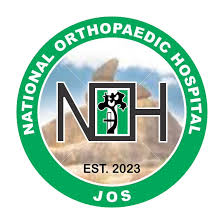Prof. Michael Ozovehe Ogirima, the Provost of the College of Health Sciences at Federal University Lokoja, has urged the federal government to quickly build more orthopaedic hospitals, trauma centres, and rehabilitation services in all six regions of Nigeria.
Ogirima, who is a well-known bone and trauma surgeon, said these facilities should be placed along busy roads. This would help accident victims, especially those who lose consciousness or have broken bones, get quick treatment. It would also help reduce deaths and long-term disabilities caused by road accidents. He shared this message while giving a lecture titled “Improvising to Greatness: The Surgeon’s Sojourn” at the university’s 32nd Inaugural Lecture.
He said that many people die before they reach the hospital because Nigeria lacks a good emergency medical system. There are not enough 24-hour ambulance services to respond to road accidents in time.
Ogirima also spoke about the problem of brain drain in Nigeria. He said many doctors, nurses, and medical teachers are leaving the country, including those with a lot of experience. He added that medical tourism—when people travel abroad for treatment—is costing Nigeria a lot of money.
He said teaching hospitals are not well-funded or properly managed. This is because they are under the Ministry of Health, while universities are managed by the National Universities Commission and Ministry of Education. As a result, medical staff are stuck between two underfunded systems, making things more difficult for them.
He pointed out that academic staff are not encouraged to do serious research or training. The environment is not good for meaningful research because of poor awareness, bad communication, and a lack of proper equipment in research labs for experiments involving human subjects.
To fix these problems, Ogirima called for more support from individuals and companies to invest in medical education and research. He said universities should receive special grants for specific projects. He also suggested that private companies and generous individuals can help by funding scholarships, workshops, and clinical training through endowments and support for academic programs.


